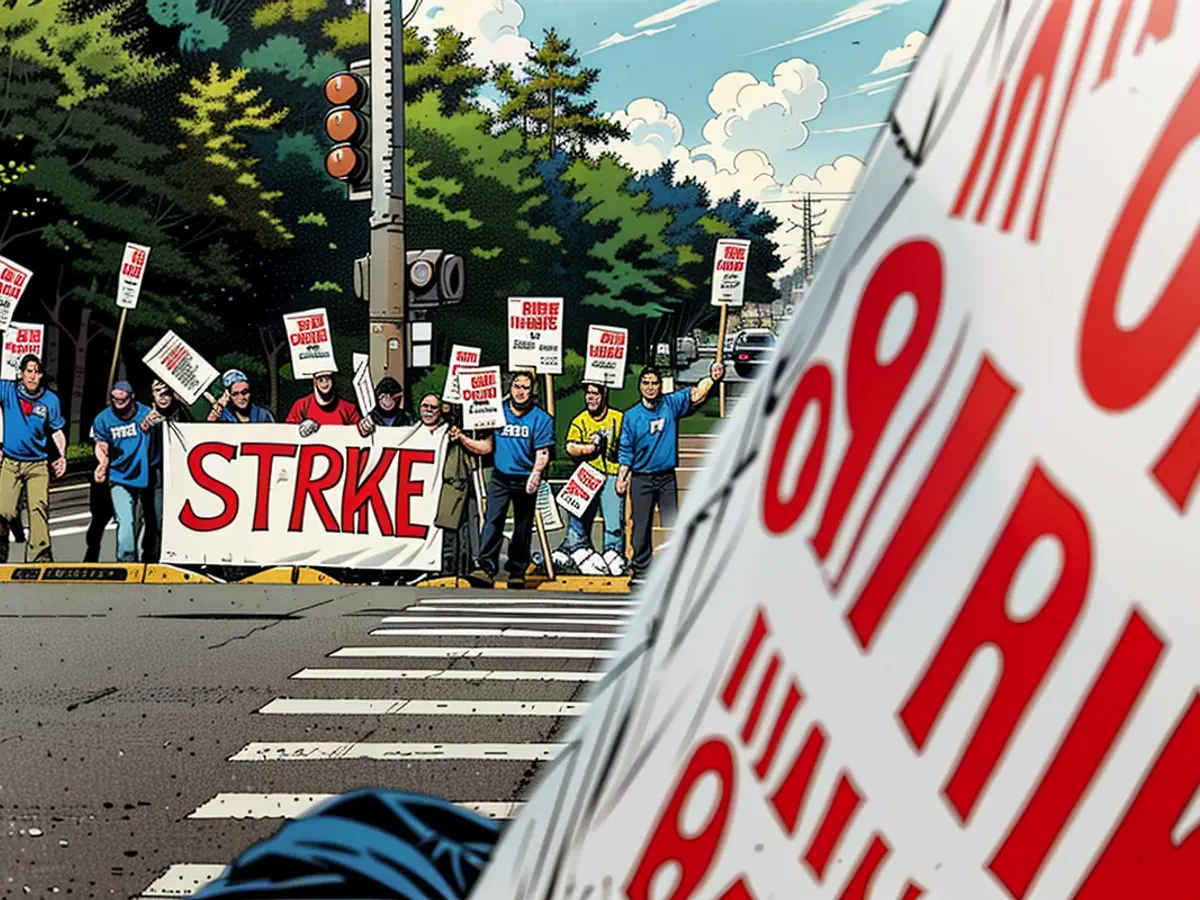The genuine motives behind the Boeing labor action
In 2022, Boeing recorded losses instead of profits. This trend of financial loss has continued since 2018, following a string of fatal crashes and near-disasters that severely damaged the company's reputation and financial health. Had Boeing not been a significant player in the global aviation industry, chances are it would have filed for bankruptcy.
Regardless, the CEO, a former accountant, saw a 45% pay increase, pushing his salary up to $32.8 million.
On the contrary, wages for Boeing's 33,000 unionized employees have remained stagnant.
The employees are fuming, accumulating years of frustration over Boeing's mismanagement, coupled with wage stagnancy and pandemic-induced inflation. This combined with a rising labor movement made a strike an inevitable fate.
Boeing's relationship with its labor unions has been volatile. Previous strikes, such as the one in 2008, were primarily driven by one side's desire to destroy the other, stated Richard Aboulafia, managing director of AeroDynamic Advisory. However, in recent years, he argued that the hostility has largely stemmed from Boeing's management.
In 2014, former CEO James McNerney fueled tension with employees when he said during an investor call that he would delay his retirement as "the heart will still be beating, the employees will still be cowering." Although McNerney later apologized for his comment, likening it to a failed joke, it still resonated with union members according to Aboulafia's account.
The newly appointed CEO, Kelly Ortberg, has inherited the challenge of rectifying decades of mismanagement at Boeing. Ortberg, a mechanical engineer with over 40 years of industry experience, faces the task of fixing the damage caused by a management team that prioritized efficiency over quality, thereby straining Boeing's relationship with its unionized workforce, which constitutes approximately 20% of Boeing's total workforce.
A strike is not an ideal situation for a new CEO, especially given Boeing's recent struggles involving multiple federal investigations into a near-catastrophic incident, two astronauts trapped in space, waiting for rescue from rival SpaceX, disgruntled customers, and a plummeting stock price.
As of now, Ortberg seems to be making progress. He kickstarted his tenure by touring the factory floor in Renton, Washington, and communicated his intention to work primarily from Seattle, close to the factories and more than 2,300 miles away from Boeing's headquarters in Virginia, which has become synonymous with Boeing's departure from its origins.
Before the strike, Ortberg urged employees not to go on strike while acknowledging their anger related to two decades of unfavourable contracts affecting their retirement and healthcare benefits.
Jon Holden, who led negotiations for the International Association of Machinists union, shared his perspective on Ortberg's position: "It's hard to make up for 16 years, and I think that's the position he was in."
Aboulafia, who has been criticizing Boeing's leadership, thinks the strike could be resolved quickly, as the current management understands the severity of the situation.
The union's rejection of Boeing's offer, which included a 25% wage increase over four years, sounds surprising to outsiders. Even union negotiators described it as the best offer ever received from Boeing. Nevertheless, union members, demanding a 40% wage increase over four years, voted overwhelmingly to reject it.
Holden couldn't pinpoint one specific reason for the backlash, but he did mention the desire for better job security, more time off, and higher wages to compensate for inflation.
Much of the rank-and-file's frustration stems from Boeing's decision to build a nonunion plant in South Carolina in 2011 to handle some of the 787 Dreamliner production. In 2020, when the pandemic affected demand for the plane, Boeing moved its remaining Dreamliner production from Washington to South Carolina, the nonunion plant.
Resentment also grew after the union agreed to a series of concessions in 2011 and 2013, such as the elimination of traditional pension plans, to keep Boeing from expanding its production in nonunion plants.
The current strike signifies a broader resurgence of union power in the United States. Exactly one year ago, the UAW managed to secure significant guarantees from the Big Three automakers following a seven-week-long strike.
The UAW made concessions, such as giving up traditional pensions, to help their companies during their financial crisis and approaching bankruptcy and federal bailouts. However, Boeing demanded these concessions when the company was financially stable, sales were robust, and profit margins were high.
"I know that many members haven't healed from that wound," Holden admitted, referring to the loss of pension plans.
According to Sharon Block, executive director of Harvard Law School's Center for Labor and a Just Economy, "The Boeing workers are playing hardball not just for the sake of exercising the power they have in this moment but informed by what has come before." This union, which agreed to concessionary contracts during Boeing's tough times, now finds itself opposing a company that relocated production to a nonunion plant when times were good.
Despite Boeing's financial struggles and leadership controversies, the company's CEO still received a significant salary increase. The business decision to build a nonunion plant in South Carolina has fueled resentment among Boeing's unionized employees, contributing to their demands during the current strike.








